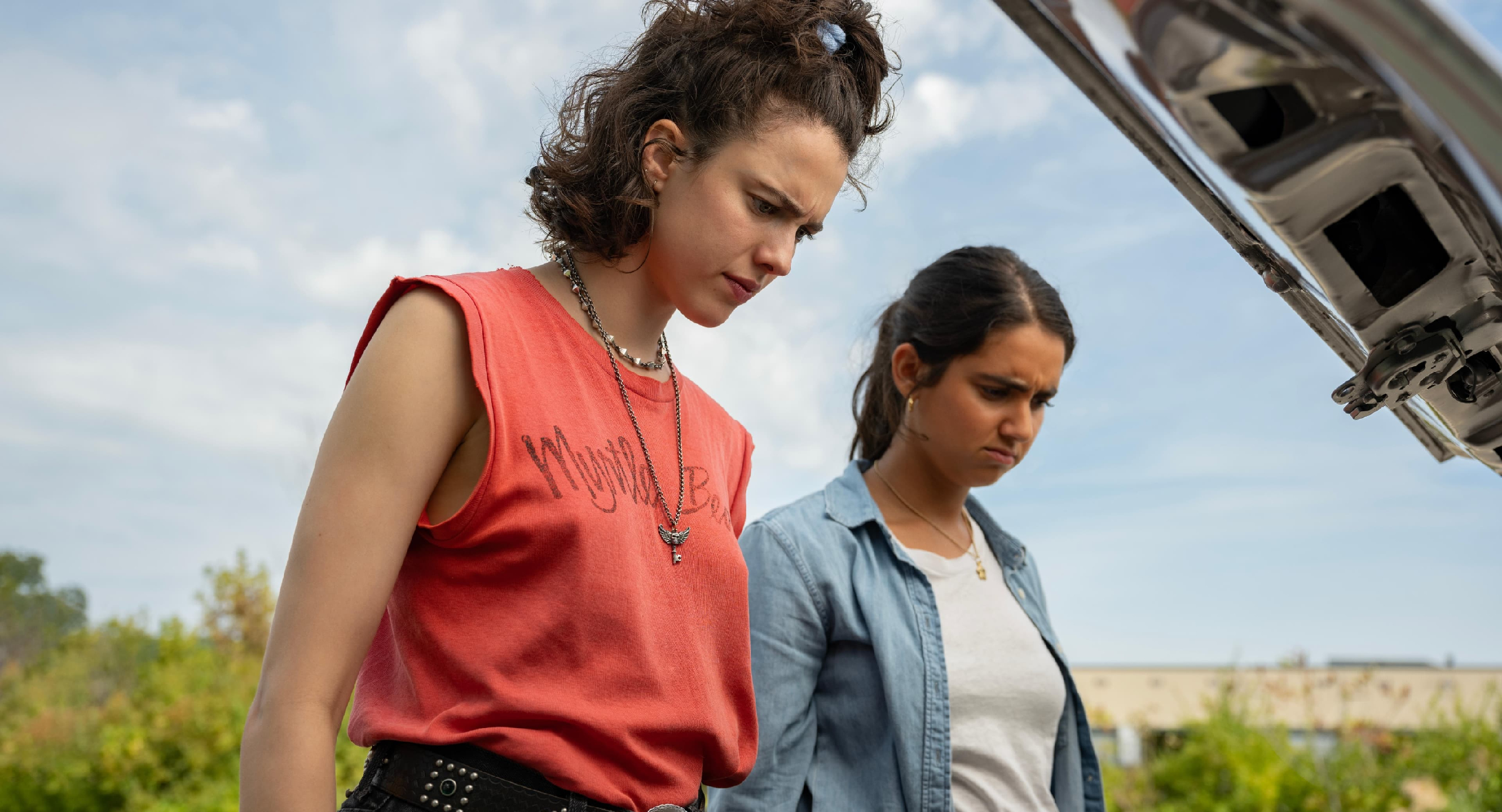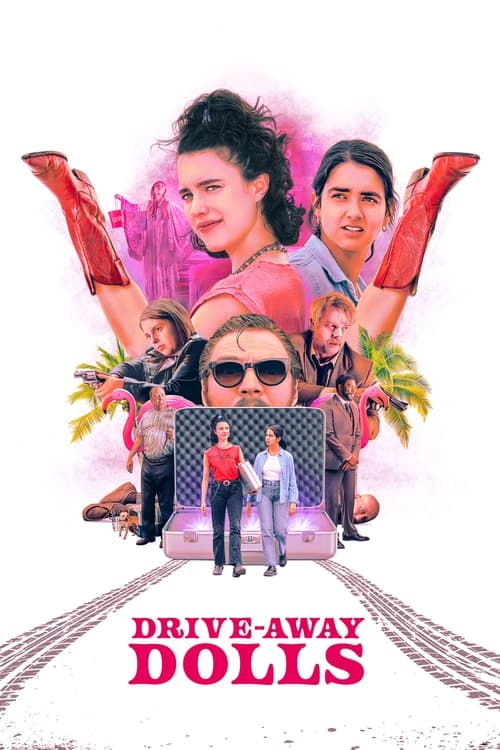Drive-Away Dolls – Film Review
Published February 22, 2024

Ethan Coen’s Drive-Away Dolls, a comedic romp on the road filled with colorful characters and capers, aims to be a light-hearted jaunt across the unpredictable highways of America. Despite the commendable efforts of a star-studded ensemble cast, led by Margaret Qualley and Geraldine Viswanathan, and the backing of proven producers and a renowned filmmaking brand, the film ultimately falls flat, delivering a bumpy ride that never truly finds its direction. Co-written with Tricia Cooke, this film aspires to merge the offbeat sensibilities of classic Coen brother films with a more mainstream comedy appeal but struggles to reconcile these elements into a cohesive narrative.
At its core, Drive-Away Dolls is a tale of two opposites on a quest for self-discovery and liberation. Qualley’s Jamie is the quintessential free spirit, constantly wrestling with personal relationships and societal expectations, while Viswanathan’s Marian serves as her polar opposite—a buttoned-up, rule-abiding individual whose idea of an adventure is meticulously planned and safe. Their dynamic, the classic odd-couple setup, should have been the beating heart of the film, providing ample opportunity for both comedic and dramatic exploration. However, their chemistry, while earnest, feels contrived at times, diluting the emotional payoff of their shared journey.
As they zigzag their way to Tallahassee, their encounter with a group of small-time criminals—played by the likes of Pedro Pascal, Bill Camp, and Matt Damon in surprisingly comedic roles—sets the stage for what should have been a hilarious clash of wills and wits. Each actor brings their unique flair to the table, with Pascal’s charisma and Damon’s against-type performance standing out. Yet, the script does not afford them the depth or development such talents deserve. The criminals’ harebrained schemes and their interactions with Jamie and Marian often veer into the realm of slapstick, undermining any attempt at subtlety or nuanced humor.
Ethan Coen, known for his adeptness at blending dark comedy with insightful commentary, seems to misstep with Drive-Away Dolls. The film flirts with themes of freedom, friendship, and the absurdity of life’s unforeseen detours, but these elements never amalgamate into a meaningful narrative. The comedy feels scattered, with gags and setups that either fall short of their mark or linger too long for comfort. The pacing, too, is inconsistent, with the film’s road trip structure failing to maintain momentum, leading to a journey that feels longer than its runtime suggests.
Visually, Drive-Away Dolls fares better. The cinematography by Ari Wegner captures the sprawling landscapes and roadside Americana with a vibrant palette that imbues the film with a sense of wanderlust and whimsy. These moments, when characters and viewers alike can breathe in the open road’s expanse and promise, hint at a more contemplative film buried underneath the misfiring comedy. The soundtrack, an eclectic mix that aims to echo the film’s erratic heart, occasionally hits the right note, offering a fleeting sense of cohesion among the narrative chaos.
Supporting performances, particularly from Beanie Feldstein and Colman Domingo, inject much-needed energy into their scenes. Feldstein’s Sukie is a bundle of joy and neuroses, providing a glimpse of what the film could have been with a tighter focus on character dynamics. Domingo, as always, commands attention with his gravitas, even in a relatively light-hearted role. However, these sparks of brilliance are too few and far between, overshadowed by a script that struggles to balance its comedic ambitions with character development.
The biggest disappointment in Drive-Away Dolls lies in its underutilization of a talented cast and a rich narrative premise. The idea of an impromptu road trip serving as a catalyst for personal growth, mishaps, and unexpected camaraderie is ripe for exploration, particularly through the Coen’s lens. Yet, the film feels like a missed opportunity, a collection of scenes in search of a story, rather than a cohesive whole. The moments that resonate are drowned out by those that aim for the lowest common denominator, leaving viewers with a sense of what might have been.
Drive-Away Dolls sets out to be a breezy, comedic take on the road trip genre but ends up lost along the way. While the efforts of its cast are commendable, they are not enough to steer this vehicle out of the doldrums of mediocrity. Fans of the Coen brothers’ unique brand of filmmaking may find moments to appreciate, but for those looking for a compelling narrative or consistent laughs, this journey is unlikely to satisfy. As the film stumbles towards its destination, one can’t help but feel that the real dolls being driven away are the audience, left to ponder the route not taken.
